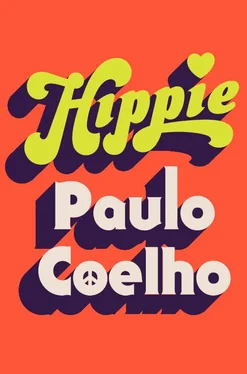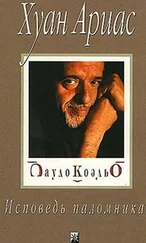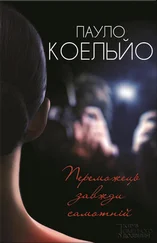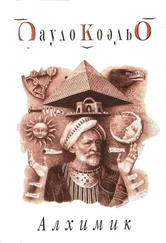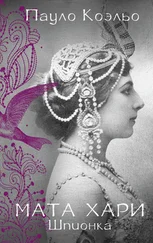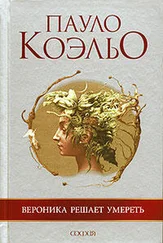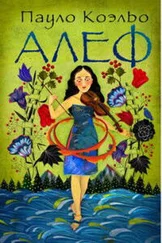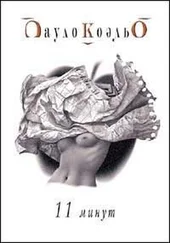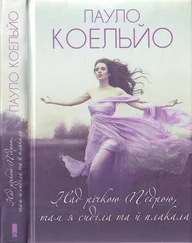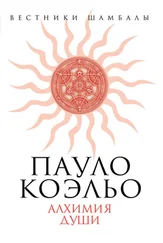“The best local wine. Nothing European; we’re in Asia, after all.”
They were dining in Asia, together, for the first time in their lives! “Unfortunately we don’t serve alcoholic beverages here. Strict religious regulations.”
“Turkey is a secular country, is it not?”
“Yes, but the owner is religious.” If they wanted to change restaurants, they could find what they were looking for two blocks away. Two blocks away they would have their wine but lose the magnificent view of Istanbul bathed in moonlight. Karla asked herself if she could manage to say everything she wanted to say without drinking. Paulo didn’t hesitate—this would be a dinner without wine.
The waiter brought a red candle inside a metal lantern, lit it in the center of the table, and while all this happened, neither of them said a thing. They imbibed the surrounding beauty and were soon drunk with it.
“We were telling each other about the days we had. You said you started off toward the bazaar to find me but soon changed your mind. A good thing, because I wasn’t at the bazaar. We’ll go tomorrow, together.”
She was behaving quite differently, remarkably mellow—which wasn’t typical of her. Had she found someone and needed to share her experience?
“You begin. You left there saying you were going after a religious ceremony. Did you find one?”
“Not exactly what I was looking for, but I found something.”
“Iknew you would return,” said the man without a name when he saw the young man in colorful clothes walk through the door. “I think you must have had a powerful experience because this place is filled with the energy of the dancing dervishes. Although, I must stress: every place on Earth contains the presence of God in the tiniest things—insects, a grain of sand, everything.”
“I want to learn the ways of the Sufi. I need a teacher.”
“Then seek the Truth. Seek always to be on its side, even when it brings you pain. There are times when the Truth goes quiet for long stretches, or when it doesn’t tell you what you want to hear. That’s Sufism. The rest is a series of sacred rites that do nothing more than intensify this state of ecstasy. But in order to take part in them, it’s necessary to convert to Islam, something I truly cannot recommend. There’s no need to join a religion on account of its rituals alone.”
“But I need someone to lead me along the path toward truth.”
“That’s not Sufism. Thousands of books have been written about the path toward Truth, and none of them explain what it is exactly. Humanity has committed its greatest crimes in the name of the Truth. Men and women were burned alive, entire civilizations were destroyed, those who committed sins of the flesh were sent away, those who pursued a different path were cast out. One of them, in the name of ‘truth,’ was crucified. But before dying, he clarified Truth’s ultimate definition. It is not that which gives us certainty. It is not that which gives us profound thoughts. It is not that which makes us better than others. It is not that which makes us prisoners to our own prejudices. ‘The Truth is what makes us free. You will know the Truth and the Truth shall set you free,’ Jesus said.”
He paused.
“Sufism is nothing more than bringing yourself up-to-date, shifting your mind, understanding that words lack the power to describe the Absolute, the Infinite.”
The food arrived. Karla knew exactly what Paulo was saying, and everything she would tell him when her turn came would be based on his words.
“Let’s eat in silence?” she asked. Once again, Paulo found her behavior unusual—normally she would have pronounced those words with an exclamation point at the end.
Yes, they ate in silence. Gazing at the sky, the full moon, the waters of the Bosphorus glowing beneath its rays, their faces illuminated by candlelight, their hearts bursting at the meeting of two strangers who suddenly enter another dimension together. The more we allow the world in, the more we receive—be it love, be it hate.
But at that moment it was neither one nor the other. Paulo wasn’t seeking any revelations, he didn’t respect any tradition, he’d forgotten what was dictated by sacred texts, logic, philosophy, everything.
He had entered a state of complete emptiness, and this emptiness, through its inherent contradiction, filled everything.
—
They didn’t ask what they’d been served—they only knew that there were tiny portions spread across many plates. They didn’t have the courage to drink the water, so they ordered soda—safer, though certainly much less interesting.
Paulo ventured the question that was burning him up, the question that could have ruined the night, but he couldn’t control himself any longer.
“You’re completely different. Have you found someone and fallen in love? You don’t need to answer, if you don’t want to.”
“I have found someone and I am in love, though he doesn’t know it.”
“Is that what happened today? Is that what you wanted to tell me?”
“Yes. When you’re done with your story. Or did you already finish?”
“No, but I need to tell it through to the end, because the story has yet to find its ending.”
“I’d like to hear the rest.”
There was no anger in her response to his question, and he tried concentrating on the food—no man likes to hear these things, especially from the woman with whom he’s dining. He always wants her to be entirely there, focused on the moment, on the candlelight dinner, the moonlight falling over the water and the city.
He began to try each dish—pasta stuffed with meat in the shape of ravioli, rice rolled up in tiny cigars made from grape leaves, yogurt, unleavened bread fresh from the oven, beans, skewers of meat, several sorts of pizza in the shape of boats and stuffed with olives and spices. Their dinner would last an eternity. But, to their surprise, the food soon disappeared from the table—it was too delicious to leave there to grow cold and lose its flavor.
The waiter returned, cleared the plastic plates, and asked whether he could bring the main dish.
“No way! We’re much too full!”
“But we’re already making it, we can’t stop now.”
“We’ll happily pay for it, but please don’t bring anything else or we won’t be able to walk afterward.”
The waiter laughed. They laughed. A strange wind blew in, bringing unexpected things with it, filling everything around them with unfamiliar flavors and colors.
It had nothing to do with the food, the moon, the Bosphorus, or the bridge—but with the day both of them had had.
“Will you tell me the rest?” Karla asked, lighting two cigarettes and handing him one. “I’m dying to tell you about my day and how I found myself.”
By the look of it, she’d found her soul mate. In reality, Paulo no longer had any interest in his own story, but she’d asked him to tell her, and now he’d tell it to the end.
His mind returned to the green room with the paint peeling from the rafters and the broken windows that once must have been true works of art. The sun had already gone down, the room was filled with darkness, and it was time to go back to his hotel, but Paulo began to question the man without a name.
“But you, sir, must have had a teacher.”
“I had three—none of them related to Islam or familiar with the poetry of Rumi. As I learned, my heart asked the Lord: Am I on the right path? He responded: You are. But I insisted: Who is the Lord? He responded: You are.”
“Who were your three teachers?”
Читать дальше
